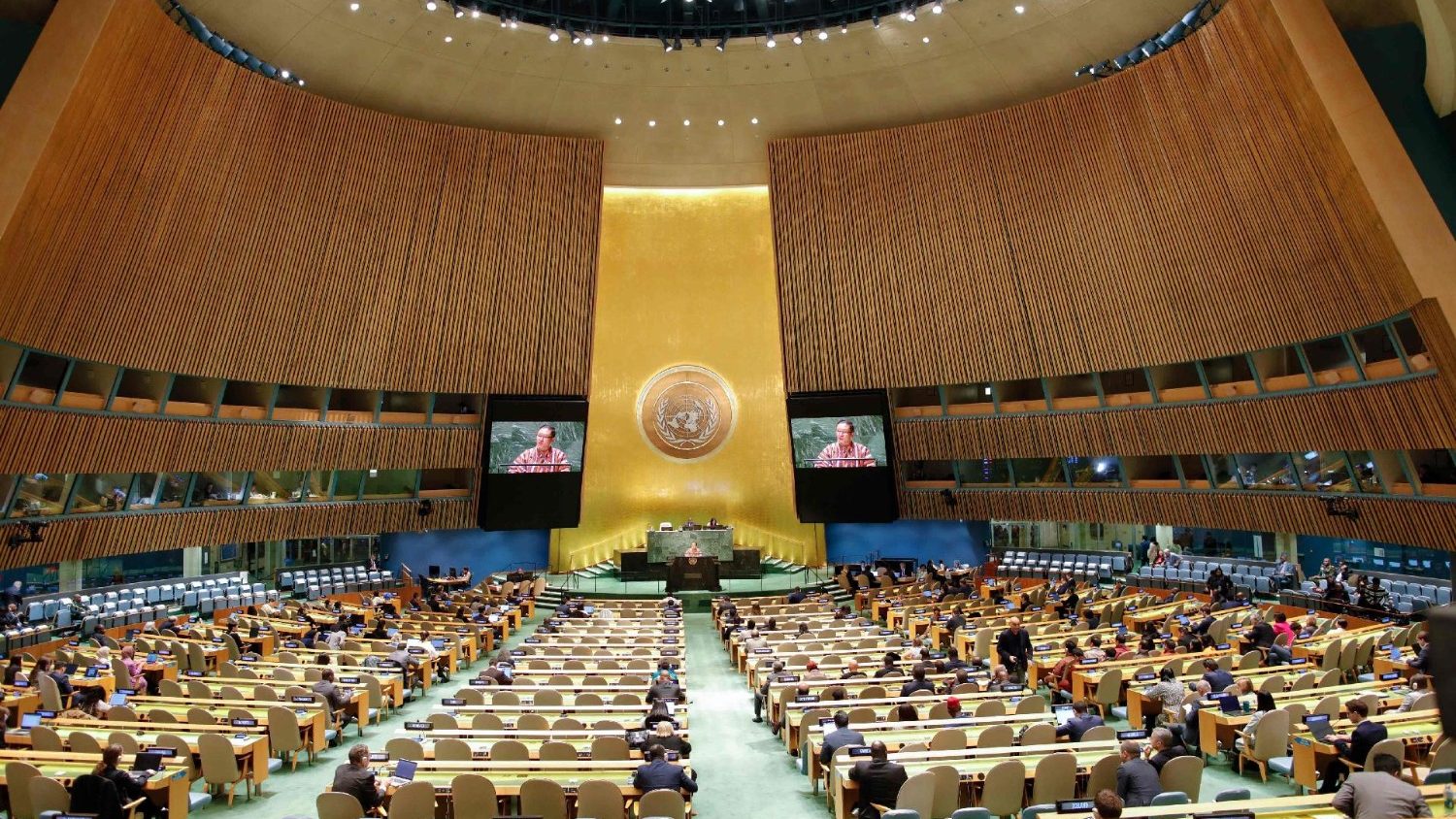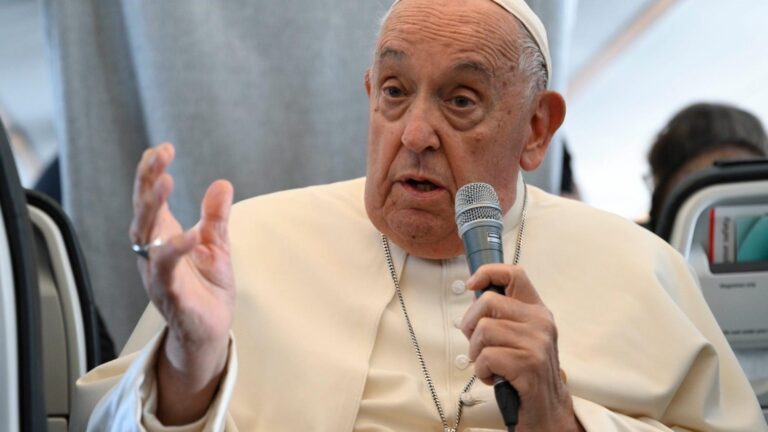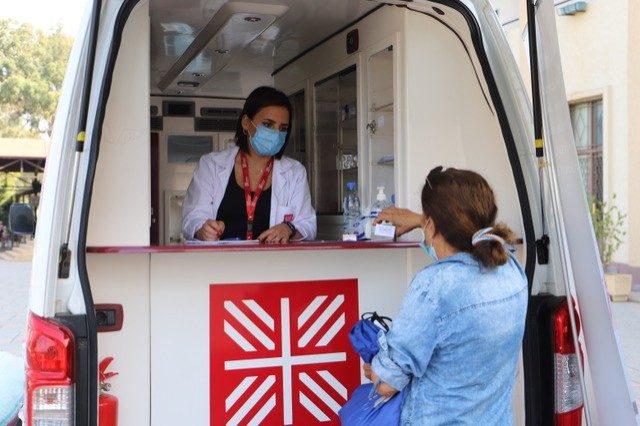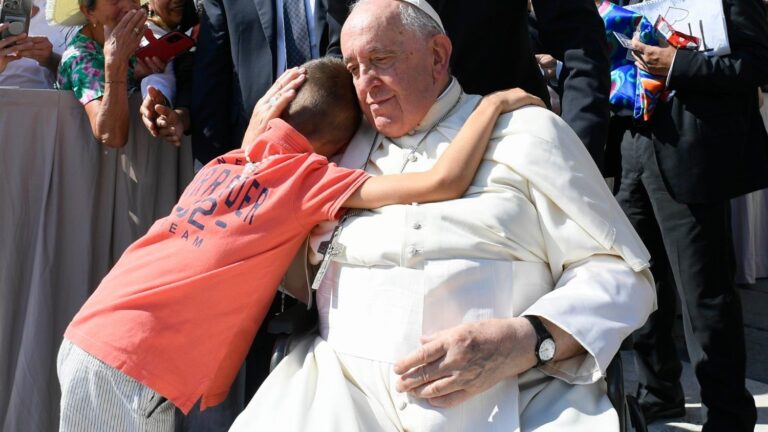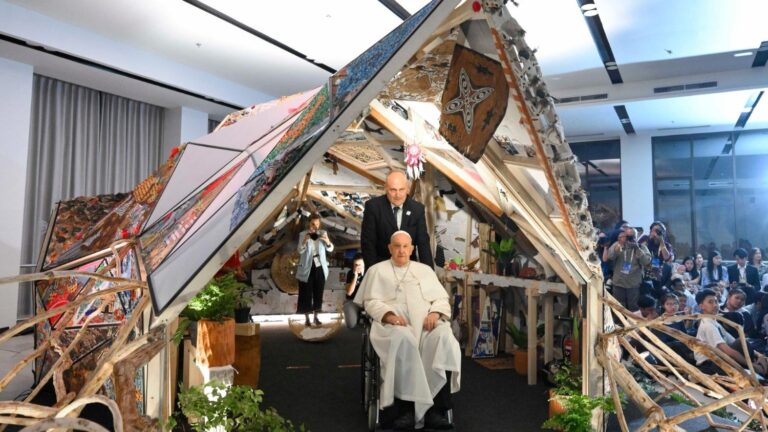Holy See: International cooperation needed to tackle crimes against humanity
At the 78th United Nations General Assembly, the Holy See supports new measures to combat crimes against humanity, calling for them to be expanded to prevent individuals from being extradited to countries where they risk torture or the death penalty.
By Joseph Tulloch
Archbishop Gabriele Caccia, Permanent Observer of the Holy See to the United Nations, spoke yesterday at the 78th session of the organization's General Assembly in New York.
The Italian archbishop highlighted the Church's support for “a universal, multilateral and legally binding instrument” on the prevention of crimes against humanity. This would be, he said, a way to “defend the dignity of every human person, promote international cooperation and put an end to the impunity of perpetrators”.
At the same time, Archbishop Caccia emphasized, given that it would be vital for such a Convention to be universally adopted, it is crucial that, when defining crimes, it “scrupulously follows existing customary norms, without seeking to innovate”.
Protect prisoners
In a separate speech to the same General Assembly, the archbishop also reflected on the importance of protecting prisoners.
In a speech read aloud by Mgr. Robert Murphy, vice permanent observer of the Holy See to the UN, welcomed draft article 5, which proposes that no person be returned to a jurisdiction where they would risk suffering a crime against humanity.
This article, considers Arcibishop, should be extended to guarantee that “no person is extradited to a jurisdiction where they risk being subjected to torture or the death penalty”.
Archbishop Caccia also welcomed Article 11, which deals with the fair treatment of perpetrators of crimes and compliance with international human rights obligations.
But this article, he added, should also be extended to promote “both the reintegration of offenders and their reconciliation with society”.
“In particular,” the archbishop said, “offenders must have access to religious ministers who can help them repair their crimes.”
The death penalty
In a third speech, also read by Mgr. Murphy, Archbishop Caccia stressed that if the Convention on Human Rights is to be adopted, it must contain guarantees to avoid conflict with “the duty of States to defend the right to life, to prevent torture and to respect other fundamental human rights.
He thus expressed the Church's support for the wording of draft article 13(7), which allows States which have abolished the death penalty not to extradite alleged perpetrators if they risk being liable for the death penalty. death sentence.
“Similarly,” he stressed, “States which maintain the death penalty in their legislation but do not apply it in practice should be able to refuse extradition on the same grounds. »
